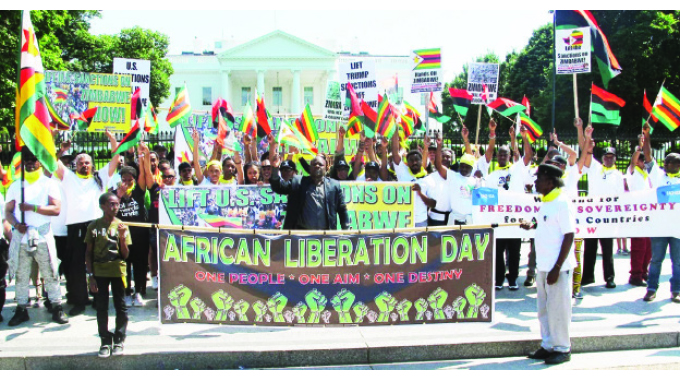Accountability radicalisation: A remedy to fiscal indiscipline

Richard Runyararo Mahomva-National Introspection
All national sovereignty and the preservation of territorial integrity is born out of revolutionary consequence.
Without “struggle”, nations are never born nor are they ever safe from attack. National formation and continuity is a process of struggle. This means that the victory earned at independence is replaced by yet another struggle to defend the gains of national formative sacrifices.
Therefore, it is correct to argue that nations assume their existence through self-defining struggles. All struggles are radical and there is no socio-economic and political transformation which can be delivered to a people through polite and decorous posturing(s).
As a result, Zimbabwe’s current struggle against poverty, lax public finance management, elimination of corruption, ruinous effects of sanctions and inequality must be radical for our economy to realise the real transformation it requires.
On that pretext, Treasury must be applauded for enforcing fiscal hygiene through its unyielding position to suspend payments for goods and services procured by Government in order to review all running contracts with all public institutions.
This is a radical step in the right direction.
In any case, this is not the first time Zimbabwe has been engaged in policy radicalisation.
Our people’s collective effort of dismantling the Rhodesian regime was in essence a radical stand against inequality.
Revolutions forego the logic of legality – they are disruptive and de-constructive to make way for the new and for the old to be buried in the past.
Whose law is it anyway?
The land reform revolutionised property ownership and defied the constitutional illegality of forcing our people to buy the land of their birth-right.
Against that backdrop, it must never come as a surprise that contract law can be suspended to give true value to goods and services that oil the machinery of the state.
I make reference to contract law because of some emerging debates that the suspension of payments and revision of tender pricing violates existing contractual obligations between the Government and its suppliers.
While that is a very logical legal argument, one wonders why the same law is put to rest when prices of goods and services are inflated. Whose law is it anyway?
The same law has been found guilty for Africans’ land dispossession, the same law has been used to criminalise Africans’ determination to affirmatively repossess their stolen land, minerals, equality and human dignity.
So why should the same law now matter when public procurement overpricing must be arrested? So the law must be allowed to defend a few services providers at the expense of the majority who are the taxpayers? Should the law be weaponised to prejudice the national purse? It doesn’t make sense!
A universal pandemic
Treasury departments all over the world grapple with effects of inflationary procurement processes. This has seen most states having to suffer huge fiscal drains, poor accountability and transparency deficits.
This is not unique to Zimbabwe. However, it is also common practice among bureaucrats across the world to silently deal with such administrative delinquencies.
For this reason, the excessively exposed corruption in Africa is discursively exaggerated to portray the continent as severely marred by public finance mismanagement.
The unmasking of public sector corruption in Africa is catered for by various neoliberal institutions preoccupied with denting the entire outlook of public administration in Africa.
The idea is to perpetuate a colonial stigmatising ideology of African governments as disorganised and incapable of running their economies without colonial state interventions.
When Zimbabwe weaned herself out of colonial economic hegemony surrogacy, the West immediately invested Zimbabwe’s reputation deformation to popularise bad governance as an integral part of the ZANU PF-led government.
The key aim of this proliferated misgiving of our national image remains anchored on dissuading alternative capital from finding its way into Zimbabwe.
In the context of our isolation from investment opportunities and denial of access to global credit lines, we need to avoid all deviant behaviour in terms of managing our resources.
This is a patriotic thing to do. At this point, we cannot afford to allow a few cartels to abuse public funds for self-enrichment.
By dealing with the mischief in the procurement sector, Government is exposing that economic patronage has no place in the broader scope to nation-building.
One would have expected both the public and private media to use this position to highlight the government and the ruling party’s total disconnection from the corruption associated with public tenders.
The media should be explicitly emphasising how the corruption bedevilling public sector finance is instigated by an embarrassingly gluttonous private sector.
Humanising the public sector
Treasury’s timely interventions also evoke deep introspection which should motivate the need to humanise our entire economic system.
Humanising the public finance space should be seen through a private sector that is committed to ensuring that all its supplied goods and services are reasonably priced.
That way, equal and economically reasonable public service access will be realised. Efficiency and ease of doing business in the public sector is enabled by fair Public and Private Partnerships (PPPs).
However, it is unfortunate that Government’s role as the biggest buyer of goods and services has been abused to suit irrational capitalist penchants.
The decision by Treasury to withhold and revise payments also enjoins us to understand that in as much as our economy suffers external arbitrage, we are also to blame for some of the problems we are facing.
Reforming at our own behest
Pan-Africanist scholars and activists have always lamented the implementation of externally imposed reforms in Africa.
For this reason, the current clarion call for the removal of illegal sanctions imposed on Zimbabwe has been affectionately received. The growing anti-sanctions movement is an expression of Africa’s uttermost displeasure in the West dictating the manner in which Zimbabwe should reform in a bid to recover political and economic democratisation values – which were never lost in the first place.
Africa’s anti-sanctions position is underpinned by the decolonisation moral standpoint of Zimbabwe’s sovereign dignity and honour. Therefore, this call for reform in public sector procurement substantiates a political will to do the right thing for the benefit of our people.
This demonstrates that Zimbabwe’s sovereign maturation is sufficient to guide internal decision-making processes without conforming to orders from the citadels of colonialism.
Going forward, there is a need for more similar public policies which revolutionise the art of governance.
Policy-making direction must be determined by the aspirations of our independence and the changing needs of our people.
We must reform because we want to reform. We must not reform to conform to external demands and pressures.










Comments